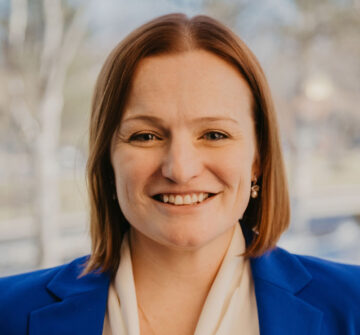Worcester-based life sciences company building team through MLSC Internship Challenge
Enable Life Sciences aims to offer a wide array of technical capabilities within the life sciences space. This includes data driven research for immune profiling and immune cell activation to support the company’s clients engaged in immunotherapies.
For entrepreneur Rachit Ohri Ph.D., when he founded the company, he was looking to oversee a small, but talented and motivated team, matched with a business approach of establishing a fee-for-service model to attract and retain clients. The MLSC Internship Challenge was the perfect opportunity to build up the Enable Life Sciences team.
It’s really been one of the fundamental pillars for what we have been able to build so far and for what we are going to build in the future as well, said Dr. Ohri.
Shilan Dong, an international student who would go onto to earn her master’s degree at Northeastern University, was Enable Life Sciences first intern. She arrived when the company was starting in a much smaller lab space within the incubator facility of Massachusetts Biomedical Initiatives (MBI) in Worcester.
Shilan worked through the early challenges of setting up the lab and can now proudly look back as the company has not only grown its client base, but also expanded into two larger lab spaces in MBI’s Barber Avenue incubator facility.
“The hope for any company taking those first few steps was to get more hands and more brains in the lab and have access to a talent pool, which is made possible by the MLSC,” said Dr. Ohri. “You not only have the ability to get positions funded in a very well structured program, but as a company, we are provided access to a database of students who are willing, able, and eager to take part in internships. This is a powerful resource to tap into.”
Shilan is now on her way to earning her Ph.D., but her experience has drawn her to seriously consider continuing to build a career right in Worcester. From her perspective, Worcester has a great intellectual environment, a healthy activity of life sciences companies, and is centrally located in Massachusetts’ broader ecosystem.
Jason Cahoon soon joined Shilan as a fellow intern. Jason, like Shilan, was able to join Enable full-time, after earning his bachelor’s degree from UMass Amherst while interning at Enable. He still remembers the class his professor relayed information about the MLSC Internship Challenge program.
“I want to thank the MLSC for changing the way I wanted to go with my career,” said Jason, who was originally interested in pursuing a career in dentistry. “I would not have been able to be here full-time and where I am now without the opportunity I was given by Rachit and the MLSC program to find a new passion. It has completely changed my career path. I’ve enjoyed every minute of it.”
Dr. Ohri appreciates the opportunity he is able to provide to young people interested in a career in the life sciences, in particular, during what he believes is an exciting time for immunotherapy and immunology. He quickly realized that he could evolve the team structure to have higher-level students, like Shilan and Jason, lead projects and then add interns at the bench level, so they can work in tandem. The Internship Challenge program once again was essential for Enable to build out these two levels, both of which are equally important and critical.
Dr. Ohri was able to provide two internship opportunities to students enrolled in Middlesex Community College’s Associate’s Degree program, which provides hands on biotechnology technician training. The two Middlesex students are on quite different paths: Boram Chean, who is in his late thirties and is aiming for a career shift that matches his passion and Alex Spurrell, a seventeen year-old, who graduated high school early and has plans to attend Northeastern University through its PlusOne Accelerated Master’s Program.
The mix of students from two-year and four-year institutions has worked out wonderfully according to Dr. Ohri. The hands on experience that Middlesex Community College provides enables students to be able to connect their education with a possibility of entering a new and exciting workforce. Dr. Ohri also credits the incubator environment that MBI has been able to build as a key ingredient for Enable’s success and growth.
“What fascinates me about the way Rachit has organized this is essentially you’re looking at this as a business model based off the Internship Challenge,” said MBI President & CEO Jon Weaver. “The exciting piece is the opportunity that exists on both sides: the students are getting the experience and on the other side, they are ‘the team’ which is far beyond the typical internship experience. From a startup perspective, I have never seen anything like it.”
Dr. Ohri is proud to have been able to provide full-time opportunities for Shilan and Jason and has similar ambitions for Boram, Alex, and their newest intern Donna, who earned her master’s degree from UMass Lowell.
“I wanted to build a team around having talented and motivated people,” said Dr. Rachit. “Without this program, I would have found it very difficult as an entrepreneur to get off the ground. In any other part of the country, I would have struggled to build out that core team.”
Middlesex Community College has received more than $3 million through the MLSC’s competitive capital program to build a state-of-the-art biotechnology facility on the Lowell campus. More recently, MBI received a $3.5 million capital grant from the MLSC to establish additional incubator space along with a “Stage II” incubator to serve as a bridge for companies to grow and sustain their business model.
In celebration of 10 years of the Internship Challenge, past and current interns, companies, and colleges and universities are encouraged to share their story.



